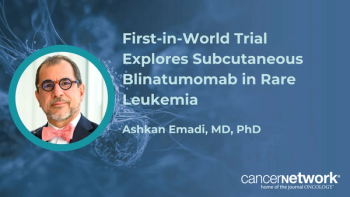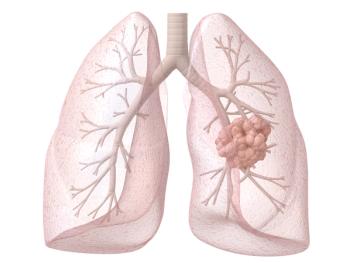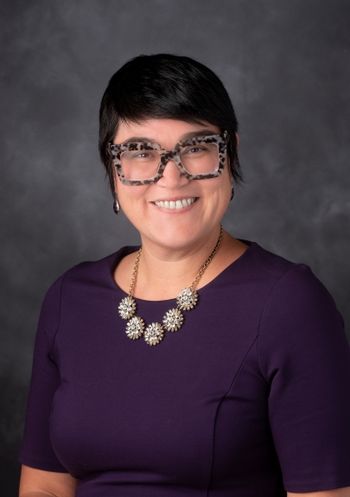
Epcoritamab Approval in R/R Follicular Lymphoma May Offer Ease of Use

The approval for epcoritamab in patients with R/R follicular lymphoma was supported by encouraging efficacy findings from the phase 1/2 EPCORE NHL-1 trial.
CancerNetwork® spoke with Tycel Phillips, MD, an associate professor in the Division of Hematology and Hematopoietic Stem Cell Transplantation at the City of Hope National Cancer Center in Duarte, California, about what
Phillips highlighted the potential impact epcoritamab would have on centers only needing to hold a single bispecific antibody, as opposed to 2. Additionally, he stated that familiarity with epcoritamab and its dosing, as well as a reduction in price, may occur as it moves into the outpatient setting.
In the pivotal cohort of the phase 1/2 trial (n = 128), the complete response (CR) and partial response (PR) rates were 66% and 17%, respectively. In the cycle 1 dose optimization cohort (n = 86), CR and PR rates were 64% and 22%.
The minimal residual disease (MRD) negativity rate was 67% in the pivotal cohort vs 64% in the cycle 1 dose optimization cohort. A favorable trend emerged between MRD negativity and progression-free survival in all evaluable patients and those in the cycle 3, day 1 landmark analysis.
The median time to response and CR in both cohorts was 1.4 months and 1.5 months, respectively.
Investigators presented these findings at the
Transcript:
The biggest impact will probably be in centers who’ve picked 1 bispecific to keep on their formulary. With epcoritamab’s [previous] approval in [diffuse] large B-cell lymphoma, that has allowed them to keep 1 bispecific agent in the formulary and doesn’t require them to have 2. In this situation, if they have a bispecific for diffuse large B-cell lymphoma and a bispecific for follicular lymphoma, it will require them to have either epcoritamab/glofitamab [Columvi] for diffuse large B-cell lymphoma and then mosunetuzumab [Lunsumio] for follicular lymphoma. This potentially, again, allows for ease of use in that situation [with] less difficulties with staff [including] infusion nurses when dealing with different bispecifics and more comfortability with dealing with 1 drug, which, in the long term, is always better for the patients just because [it’s] easier to manage the toxicity that may come from this. [There’s] more familiarity with the step-up dosing for epcoritamab, which is different from what we have with mosunetuzumab and glofitamab. Also, for some of the [adverse] effects that come from it like cytokine release syndrome and immune effector cell-associated neurotoxicity syndrome [ICANS]—which is the neurological toxicity that can be associated with this [treatment]—the timing of all those events [may be] different with those drugs. Again, [the approval] just allows some more familiarity with [epcoritamab] and potentially cheaper prices as [it’s] moving to the outpatient setting.
References
- FDA grants accelerated approval to epcoritamab-bysp for relapsed or refractory follicular lymphoma. News release. FDA. June 26, 2024. Accessed July 8, 2024. https://tinyurl.com/26s9myey
- Vose J, Vitolo U, Lugtenburg P, et al. EPCORE NHL‑1 follicular lymphoma (FL) cycle (C) 1 optimization (OPT) cohort: expanding the clinical utility of epcoritamab in relapsed or refractory (R/R) FL. J Clin Oncol. 2024; 42(suppl 16):7015. doi:10.1200/JCO.2024.42.16_suppl.7015
Newsletter
Stay up to date on recent advances in the multidisciplinary approach to cancer.












































